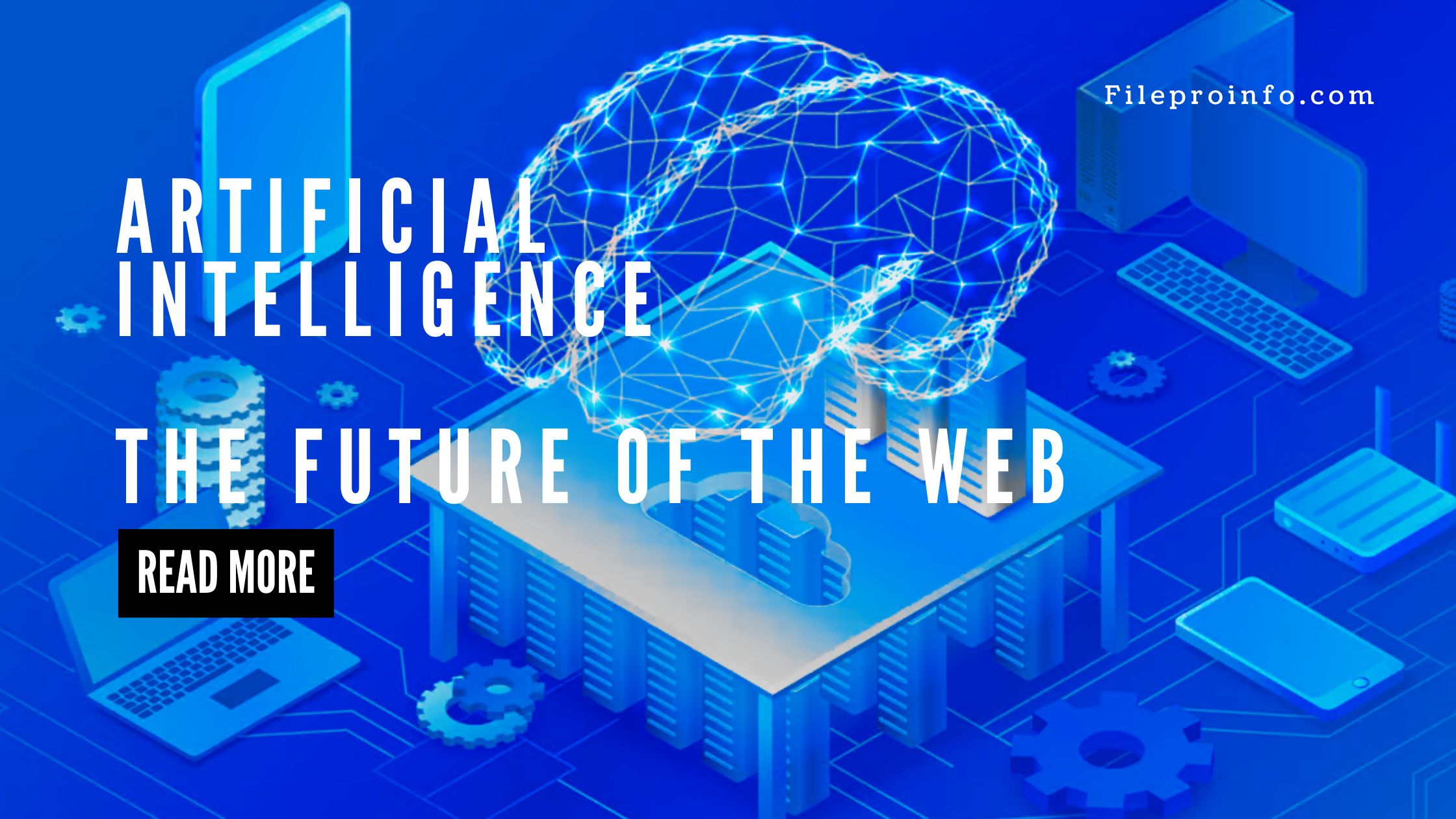
The evolution of the web is a story of constant innovation, with each new technology further enhancing our digital experiences. Among these, artificial intelligence (AI) is undoubtedly one of the most transformative technologies in recent history. AI’s potential to reshape the future of the web is vast, from improving search engines to personalizing user experiences and enhancing cybersecurity. As AI continues to advance, it promises to redefine the way we interact with the Internet and how businesses, organizations, and individuals leverage the web.
In this article, we will explore the role of AI in shaping the future of the web, examining its current impact on web development, e-commerce, security, and content creation, while also looking ahead to the ethical challenges and opportunities it presents.
AI and Personalization of Web Experiences
One of the most noticeable ways AI is already shaping the web is through personalized content and experiences. Today’s internet users expect content to be tailored to their preferences, and AI is at the core of delivering these customized experiences. Platforms like Netflix, Amazon, and Spotify use AI algorithms to analyze user behavior and preferences, recommending content that is most relevant to individual tastes. This level of personalization not only enhances user satisfaction but also increases engagement and time spent on websites.
AI-powered recommendation engines have become a cornerstone of modern e-commerce, social media, and content platforms. By analyzing vast amounts of data, AI can predict what users want to see next, creating a more seamless and intuitive browsing experience. In the future, these AI systems will become even more sophisticated, able to anticipate needs before users are even aware of them, thus making the web more interactive and user-centric.
AI’s Role in Enhancing Search Engines
Search engines are another area where AI has made a significant impact. Google, the world’s most popular search engine, has integrated AI technologies like RankBrain and BERT to improve search result accuracy and relevance. These AI-driven algorithms help Google better understand the context and intent behind search queries, moving beyond simple keyword matching.
This shift towards semantic search is powered by natural language processing (NLP), a branch of AI that enables machines to understand and respond to human language more effectively. As a result, search engines are becoming smarter and more capable of delivering contextually relevant information to users. AI also powers voice search technologies, which are becoming increasingly popular with the rise of virtual assistants like Siri, Alexa, and Google Assistant. As AI continues to improve, we can expect search engines to evolve into even more intuitive tools that provide information in a conversational, human-like manner.
AI-Powered Web Development and Design
The world of web development is undergoing a revolution thanks to AI. Building and designing websites no longer requires a team of developers and designers. AI-powered tools like Wix ADI (Artificial Design Intelligence) and The Grid are capable of generating entire websites based on user inputs, preferences, and goals. These platforms can analyze a website’s purpose, content, and user data to create optimized designs and layouts, saving time and resources for businesses.
Beyond design, AI also plays a crucial role in user experience (UX) optimization. AI systems can perform A/B testing in real-time, analyzing user interactions with different designs and adapting them to maximize engagement and conversions. By learning from user behavior, AI-driven interfaces can continuously improve over time, creating personalized experiences that adapt to each visitor’s needs.
In addition to front-end design, AI is being used to automate back-end processes. From predictive maintenance of server systems to optimizing website performance based on traffic patterns, AI is making the web faster, more reliable, and more efficient.
AI and Web Security
As more of our lives move online, the need for robust web security has never been greater. AI is playing a pivotal role in securing the web by identifying and mitigating potential threats in real time. Traditional cybersecurity measures often rely on pre-programmed rules, making them vulnerable to novel threats. However, AI-powered security systems use machine learning to detect anomalies and recognize patterns associated with cyberattacks, even those that haven’t been seen before.
Machine learning algorithms can analyze vast amounts of data to detect unusual behavior, flagging it as a potential security threat. AI can also automate responses to these threats, such as shutting down compromised systems or isolating suspicious activity to prevent the spread of malware. For instance, static residential proxy services can enhance security by providing anonymous IP addresses that prevent cyberattacks aimed at tracking or exploiting user data. Integrating AI with such proxies can further shield users by detecting and preventing malicious activities before they reach the user’s device.
Furthermore, AI is also helping in the creation of advanced authentication systems, such as biometric recognition, which adds an additional layer of security. AI-driven facial recognition and fingerprint scanning technologies are becoming more widespread, particularly in mobile devices, ensuring that only authorized individuals can access sensitive information.
AI and the Future of E-commerce
The e-commerce industry has already embraced AI, but its future will likely see even deeper integration. AI-driven chatbots, for example, are transforming customer service by offering 24/7 support, answering queries, and resolving issues in real time. These chatbots use NLP to understand customer questions and provide appropriate responses, improving efficiency and customer satisfaction.
AI also plays a critical role in inventory management and logistics. Predictive analytics, powered by AI, help businesses forecast demand and optimize stock levels, ensuring that products are always available when needed. This reduces costs associated with overstocking or stockouts. In addition, AI helps businesses personalize shopping experiences by recommending products based on user browsing and purchasing histories.
Augmented reality (AR), which is increasingly powered by AI, is another frontier for e-commerce. AR allows users to try on products virtually before purchasing them, enhancing the online shopping experience. This technology is particularly useful for the fashion, furniture, and cosmetics industries, where visualizing products in a real-world setting is crucial to the buying decision.
AI in Content Creation and Curation
AI is also revolutionizing the way content is created and curated on the web. AI-driven content generators are now capable of writing articles, creating images, and even producing music. These tools are particularly valuable for businesses that need to produce large volumes of content quickly. AI can also analyze user engagement with content to recommend improvements and generate variations that are more likely to resonate with specific audiences.
However, the rise of AI in content creation raises ethical concerns, particularly around the spread of misinformation. As AI-generated content becomes more realistic, it becomes increasingly difficult to differentiate between content created by humans and machines. This could lead to the proliferation of fake news, deepfakes, and other forms of deceptive content.
AI-driven content curation algorithms also shape the way we consume media. Social media platforms like Facebook, Instagram, and Twitter use AI to determine which posts, ads, and news articles are shown to users. While this personalization can improve user experiences, it also creates echo chambers where users are only exposed to information that aligns with their existing beliefs, potentially exacerbating polarization.
Ethical Considerations and Challenges
As AI continues to shape the future of the web, it also presents several ethical challenges. One of the most significant concerns is privacy. AI systems rely on vast amounts of data to function, much of which is personal and sensitive. Without proper regulations, there is a risk that this data could be misused or exploited.
Another ethical challenge is the potential for AI to reinforce biases. If AI algorithms are trained on biased data, they may produce biased results, perpetuating existing inequalities. For example, facial recognition systems have been shown to perform less accurately for people of color, leading to concerns about discrimination.
Finally, there is the issue of control. As AI becomes more integrated into the web, there is a risk that a few large tech companies will monopolize AI technology, limiting access for smaller players and stifling innovation.
Conclusion
Artificial intelligence is already playing a significant role in shaping the future of the web, and its influence is only set to grow. From personalized experiences and improved security to content creation and web design, AI is transforming the way we interact with the internet. However, as with any transformative technology, AI brings with it a range of ethical challenges that must be addressed to ensure that its benefits are shared equitably. The future of the web is undoubtedly tied to the future of AI, and as the technology evolves, so too will the internet we know today.




